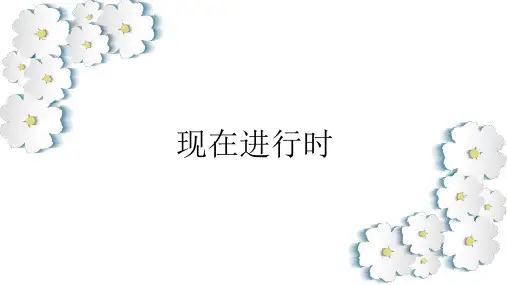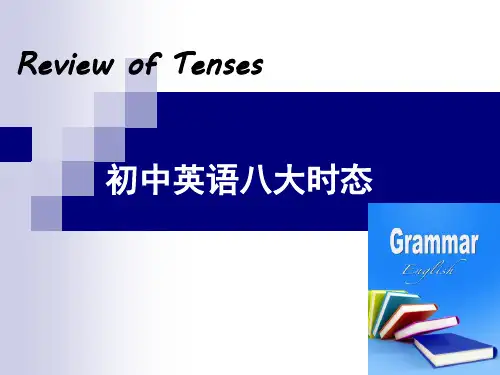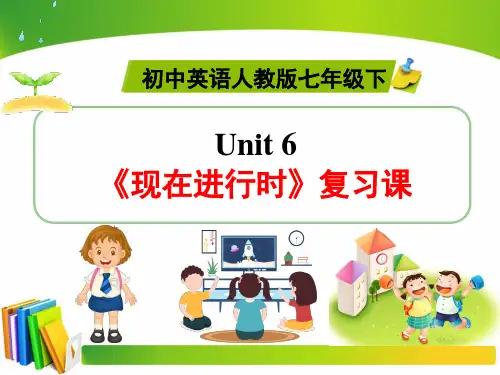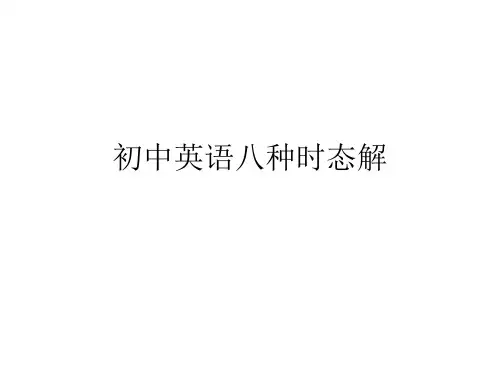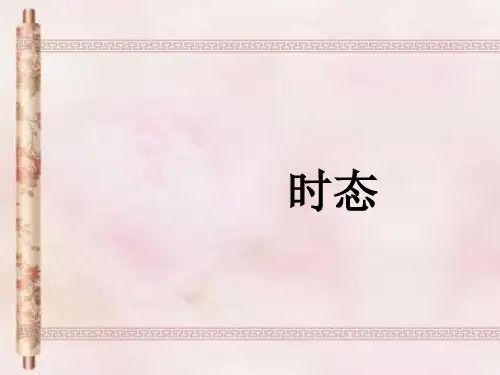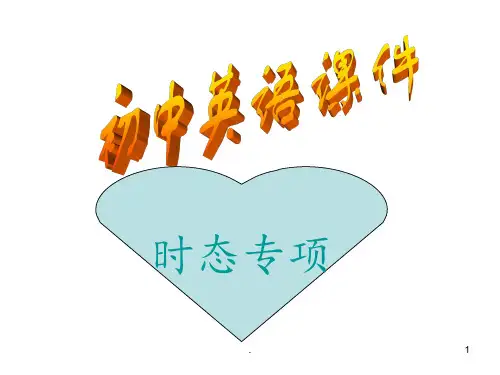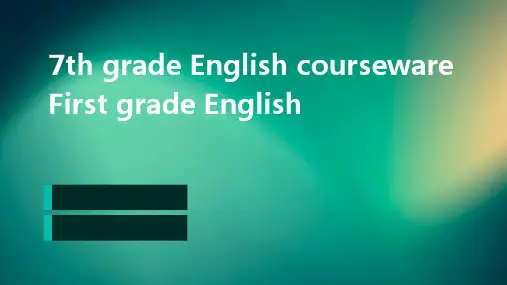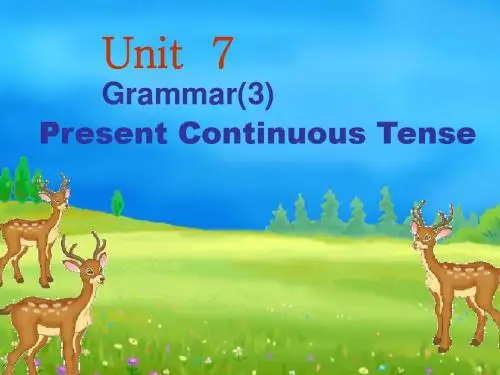什么情况下用?
①表示经常或习惯性的动作或存 在的状态。②表示主语通常的能 力、兴趣爱好、和性格特征。③ 表示客观的事实或真理。④表示 按照时刻表或已经计划安排好的 将来行为。(只限于是go, come, leave, arrive, begin, start, take off, stop, be等表示开始或移动意义的 词。)⑤在时间状语从句和条件 状语从句中,主句用一般将来时 (will+动词原形),从句中用一般
1. He______(be, am, is, are) a teacher at No. 2 Middle School. 2. He______(have, has) classes in the afternoon. 3. He______(get, gets) up at half past six every morning. 4. He always _____(come, comes ) to school on time. 5. He ______(study, studies) very hard at his lesson. 6. One and two _____(be, is, are) three. 7. Blue and yellow _____(make, makes) green. 8. The earth _____(move, moves) round the sun. 9. I will go there if I ____( be, will be, am, is, are) free tomorrow.
初中英语八种时态解
一般现在时 一般过去时 现在进行时 过去进行时 现在完成时 过去完成时 一般将来时 过去将来时
一般现在时
一、一般现在时:
